
It’s a tale of two kombuchas as Mr. Sato tries a canned kombucha imported from the U.S. that startles his taste buds and blows his mind.
Recently, our Japanese-language reporter Mr. Sato took shelter from the cold weather by ducking into the food section of the swanky Isetan department store in Tokyo’s Shinjuku neighborhood. Eventually, he figured he should buy something to justify all the loitering he was doing, and as he looked over the drink shelves, his eyes landed on this snazzy-looking can.
Mr. Sato’s command of the English language is less than perfect, but the can clearly said “kombucha,” and since he’s a big fan of the Japanese tea called kombucha, he figured this would be a tasty way to wet his whistle. But this wasn’t just any old kombucha, as the canned beverage was imported from the U.S.A., Oregon to be precise, and flavored with lemon.
Being the enthusiastic internationalist that he is, though, Mr. Sato wasn’t intimidated, and so he paid for his can of Oregon Roots-brand kombucha and took it back to SoraNews24 headquarters. As soon as he popped the top, though, he got another surprise, as the drink was carbonated, a big departure from the way kombucha is served in Japan.
But even more than the fizz, the flavor shocked him…
…because this American kombucha didn’t taste anything like the kombucha Mr. Sato has been drinking for decades in Japan.
The American kombucha didn’t taste bad, mind you. It just had a flavor profile that was completely alien to Mr. Sato’s palate, and not just because of the sharp taste of lemon. No, it wasn’t just the addition of citrus that made the American kombucha unfamiliar…something was missing.
So Mr. Sato turned the can around to the backside, where the importer had placed a translation sticker detailing the drink, and was shocked to discover that the American kombucha has absolutely no kombu in it!
▼ 原料に昆布は作用しておりません。 = No kombu is used in the making of this beverage.
But…how could this be possible? The Japanese tea called kombucha gets its name because it’s a tea (cha in Japanese) that’s made with kombu. Mugicha, barley tea, is made with mugi (barley). Genmaicha is made with genmai (brown rice). So how can a company sell something called kombucha without even a trace of kombu in it?
Then Mr. Sato dug a little deeper, and had the tatters of his already blown mind exploded once again when he found out that American kombucha never contains kombu, because American kombucha and Japanese kombucha are entirely different kinds of drinks, altogether.
▼ “American kombucha and Japanese kombucha are entirely different kinds of drinks!”
See, in English-speaking regions, the drink called kombucha is made with a fermented mushroom culture, which is also called, in English, kombucha (which is why the beverage should technically be called “kombucha tea”). But here in Japan, the drink called kombucha is a tea made with kombu, the Japanese word for “kelp.”
▼ What Japan calls kombu, used in making Japanese kombucha
▼ Japanese kombucha, which is different from overseas kombucha
Again, Mr. Sato had no complaints about the taste of the Oregonian kombucha, once he got over the shock of it not being at all what he’d been expecting. So if you’re thirsty in Japan, keep in mind that American kombucha and Japanese kombucha, just like the American and Japanese Dangerous Beauty, are two very different things.
Kombu image: Wikipedia/FlickrLickr
Japanese kombucha image: Wikipedia/Tawashi2006
All other photos ©SoraNews24
[ Read in Japanese ]
Follow Casey on Twitter, where “It’s an entirely different kind of flying, altogether,” is one of his favorite scenes in the movie Airplane.
[ Read in Japanese ]

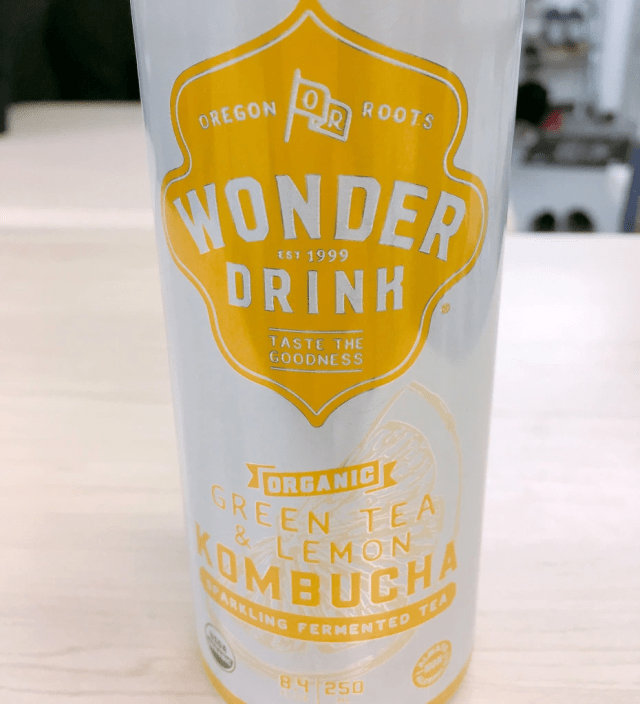
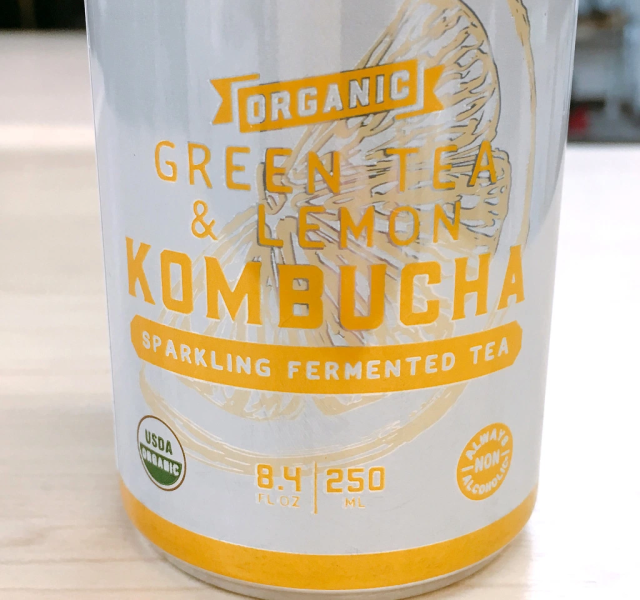
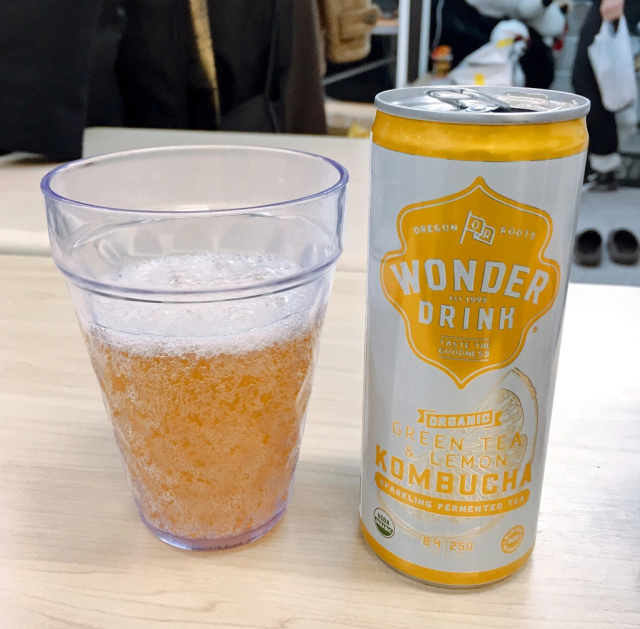
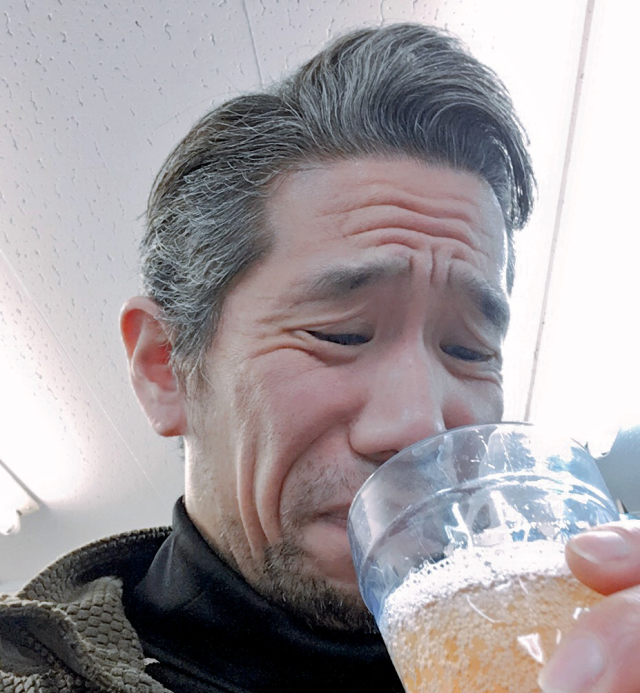

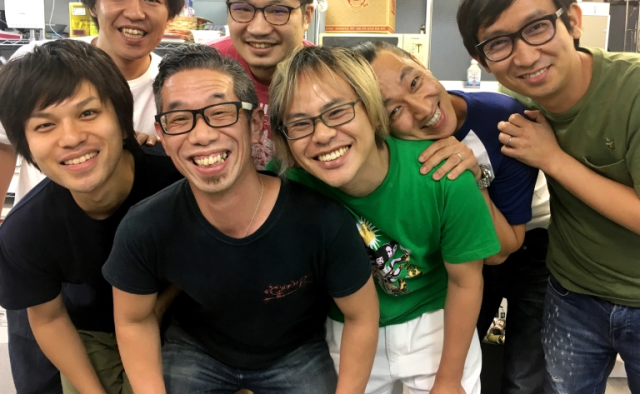
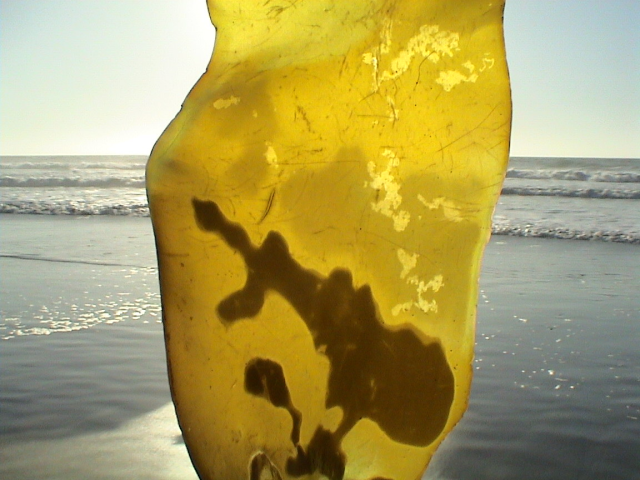
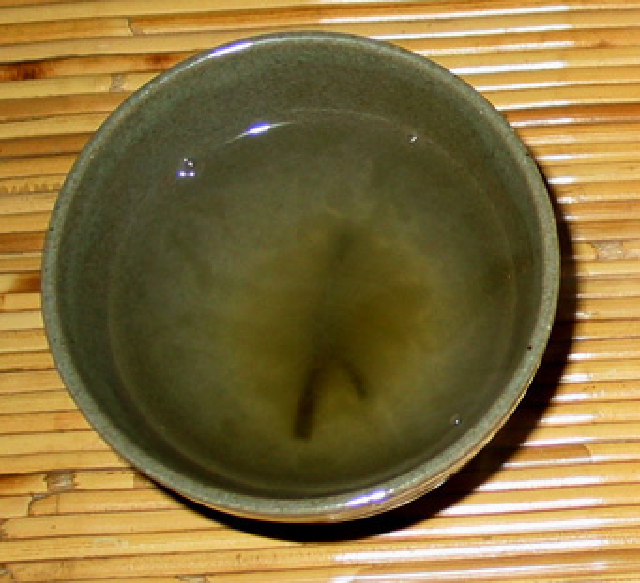
 Cups made of kelp from Hokkaido add a touch of umami to whatever you put inside
Cups made of kelp from Hokkaido add a touch of umami to whatever you put inside We read and then eat a rare edition of the Hokkaido Shimbun newspaper made out of kelp
We read and then eat a rare edition of the Hokkaido Shimbun newspaper made out of kelp Seaweed in your green tea Frappuccino? Starbucks Japan has a bold idea for its New Year’s drink
Seaweed in your green tea Frappuccino? Starbucks Japan has a bold idea for its New Year’s drink You can make rice with tapioca bubble tea, and it’s surprisingly tasty【SoraKitchen】
You can make rice with tapioca bubble tea, and it’s surprisingly tasty【SoraKitchen】 We find Italian Soba at an Aomori fish market that insisted it’s perfect for the beach
We find Italian Soba at an Aomori fish market that insisted it’s perfect for the beach Japan’s new difficult-to-drink-from beer glass protects your liver, but it’s a brutal experience
Japan’s new difficult-to-drink-from beer glass protects your liver, but it’s a brutal experience How to order snacks on a Shinkansen bullet train in Japan
How to order snacks on a Shinkansen bullet train in Japan New samurai glasses are Japan’s latest weird must-have souvenir
New samurai glasses are Japan’s latest weird must-have souvenir New Pokémon ice cream, dessert drinks, and cool merch coming to Baskin-Robbins Japan【Pics】
New Pokémon ice cream, dessert drinks, and cool merch coming to Baskin-Robbins Japan【Pics】 Doraemon found buried at sea as scene from 1993 anime becomes real life【Photos】
Doraemon found buried at sea as scene from 1993 anime becomes real life【Photos】 Burger King Japan suddenly adds Dr. Pepper and Dr. Pepper floats to its menu nationwide
Burger King Japan suddenly adds Dr. Pepper and Dr. Pepper floats to its menu nationwide Starbucks Japan welcomes alpacas for cute summer drinkware line【Photos】
Starbucks Japan welcomes alpacas for cute summer drinkware line【Photos】 High-fashion Totoro cuddle purse is like an elegant stroll in the forest【Photos】
High-fashion Totoro cuddle purse is like an elegant stroll in the forest【Photos】 Studio Ghibli hair accessories keep your style tidy with help from Kiki, Moro, Calcifer, and more
Studio Ghibli hair accessories keep your style tidy with help from Kiki, Moro, Calcifer, and more What if Sailor Moon characters were lingerie models? They’d look stunning like this 【Photos】
What if Sailor Moon characters were lingerie models? They’d look stunning like this 【Photos】 Nintendo history you can feel – Super NES, N64, and GameCube controllers become capsule toys
Nintendo history you can feel – Super NES, N64, and GameCube controllers become capsule toys Hello, cosmetics! Clinique teams up with Hello Kitty this summer for first-time collaboration
Hello, cosmetics! Clinique teams up with Hello Kitty this summer for first-time collaboration Demon Slayer: Kimetsu no Yaiba gets new roller coaster attractions and food at Universal Studios Japan
Demon Slayer: Kimetsu no Yaiba gets new roller coaster attractions and food at Universal Studios Japan “The most Delicious Cup Noodle in history” – Japan’s French Cup Noodle wins our heart【Taste test】
“The most Delicious Cup Noodle in history” – Japan’s French Cup Noodle wins our heart【Taste test】 Starbucks releases a cute Frappuccino and Unicorn Cake…but not in Japan
Starbucks releases a cute Frappuccino and Unicorn Cake…but not in Japan Kyoto Tower mascot termination reveals dark side behind cute Japanese characters
Kyoto Tower mascot termination reveals dark side behind cute Japanese characters McDonald’s Japan’s Soft Twist Tower: A phantom ice cream only sold at select branches
McDonald’s Japan’s Soft Twist Tower: A phantom ice cream only sold at select branches Yabai Ramen: What makes this Japanese ramen so dangerous?
Yabai Ramen: What makes this Japanese ramen so dangerous? Finally! Nintendo Japan expands Switch 8-bit controller sales to everybody, Online member or not
Finally! Nintendo Japan expands Switch 8-bit controller sales to everybody, Online member or not Japanese government wants to build luxury resorts in all national parks for foreign tourists
Japanese government wants to build luxury resorts in all national parks for foreign tourists To combat declining birth rate, Japan to begin offering “Breeding Visas” to foreigners
To combat declining birth rate, Japan to begin offering “Breeding Visas” to foreigners 10 things you should buy at 7-Eleven in Japan
10 things you should buy at 7-Eleven in Japan Studio Ghibli releases anime heroine cosplay dresses that are super comfy to wear
Studio Ghibli releases anime heroine cosplay dresses that are super comfy to wear Woman charged for driving suitcase without a license in Osaka
Woman charged for driving suitcase without a license in Osaka Studio Ghibli unveils My Neighbour Totoro miniature house model
Studio Ghibli unveils My Neighbour Totoro miniature house model Kyoto experiencing problems with foreign tourists not paying for bus fares, but not on purpose
Kyoto experiencing problems with foreign tourists not paying for bus fares, but not on purpose Fighting mild hunger with a Japanese soda that turns into jelly in the stomach【Taste test】
Fighting mild hunger with a Japanese soda that turns into jelly in the stomach【Taste test】 Studio Ghibli’s Howl’s Moving Castle tapestry unveiled in Japan for first time
Studio Ghibli’s Howl’s Moving Castle tapestry unveiled in Japan for first time McDonald’s new Happy Meals offer up cute and practical Sanrio lifestyle goods
McDonald’s new Happy Meals offer up cute and practical Sanrio lifestyle goods Sales of Japan’s most convenient train ticket/shopping payment cards suspended indefinitely
Sales of Japan’s most convenient train ticket/shopping payment cards suspended indefinitely Sold-out Studio Ghibli desktop humidifiers are back so Totoro can help you through the dry season
Sold-out Studio Ghibli desktop humidifiers are back so Totoro can help you through the dry season Japanese government to make first change to romanization spelling rules since the 1950s
Japanese government to make first change to romanization spelling rules since the 1950s Foreigner’s request for help in Tokyo makes us sad for the state of society
Foreigner’s request for help in Tokyo makes us sad for the state of society Ghibli founders Toshio Suzuki and Hayao Miyazaki contribute to Japanese whisky Totoro label design
Ghibli founders Toshio Suzuki and Hayao Miyazaki contribute to Japanese whisky Totoro label design Tokyo’s most famous Starbucks is closed
Tokyo’s most famous Starbucks is closed Princesses, fruits, and blacksmiths: Study reveals the 30 most unusual family names in Japan
Princesses, fruits, and blacksmiths: Study reveals the 30 most unusual family names in Japan Futuristic drinks stand in Tokyo lets you order cute, personalised beverages from your phone
Futuristic drinks stand in Tokyo lets you order cute, personalised beverages from your phone Mr. Sato eats a Japanese sweet potato brulée so good that it just about knocks his socks off
Mr. Sato eats a Japanese sweet potato brulée so good that it just about knocks his socks off Mr. Sato channels his inner Elsa, books a night at a Hokkaido ice hotel 【Photos】
Mr. Sato channels his inner Elsa, books a night at a Hokkaido ice hotel 【Photos】 Mr. Sato broadens his home drinking horizons at Kaldi【Japan’s Best Home Senbero】
Mr. Sato broadens his home drinking horizons at Kaldi【Japan’s Best Home Senbero】 Eating Tokyo’s most expensive pancakes required us to go through a security check
Eating Tokyo’s most expensive pancakes required us to go through a security check Does Japan’s “body fat-burning” bottled tea really work? Our 30-day investigation 【RocketScience】
Does Japan’s “body fat-burning” bottled tea really work? Our 30-day investigation 【RocketScience】 Enter the cup noodle: Eating instant ramen in bullet time
Enter the cup noodle: Eating instant ramen in bullet time Sushi for breakfast? Our under-1,000-yen breakfast with Hama Sushi’s new morning menu
Sushi for breakfast? Our under-1,000-yen breakfast with Hama Sushi’s new morning menu Is that restaurant in Tokyo with the giant mecha crab sign any good?
Is that restaurant in Tokyo with the giant mecha crab sign any good? Starbucks Japanese New Year’s Frappuccino: Too delicious to wait for January to drink【Taste test】
Starbucks Japanese New Year’s Frappuccino: Too delicious to wait for January to drink【Taste test】 Tapioca tea is the biggest thing in Tokyo right now, so we try Tokyo’s biggest tapioca tea【Pics】
Tapioca tea is the biggest thing in Tokyo right now, so we try Tokyo’s biggest tapioca tea【Pics】 Japan’s Whipped Cream Burger is a fistful of sweet dairy and a mouthful of complete honesty
Japan’s Whipped Cream Burger is a fistful of sweet dairy and a mouthful of complete honesty Using Starbucks Japan’s hot water to make ochazuke, one of Japan’s best comfort foods
Using Starbucks Japan’s hot water to make ochazuke, one of Japan’s best comfort foods Tokyo’s spicy cod roe ice cream: An unexpected dessert that tastes about like what you’d expect
Tokyo’s spicy cod roe ice cream: An unexpected dessert that tastes about like what you’d expect Anna Miller’s announces closure, immediately becomes Tokyo’s top must-visit cafe
Anna Miller’s announces closure, immediately becomes Tokyo’s top must-visit cafe Be Mr. Sato’s online friend, and he might take you to dinner, like he did with these foreign fans
Be Mr. Sato’s online friend, and he might take you to dinner, like he did with these foreign fans
Leave a Reply